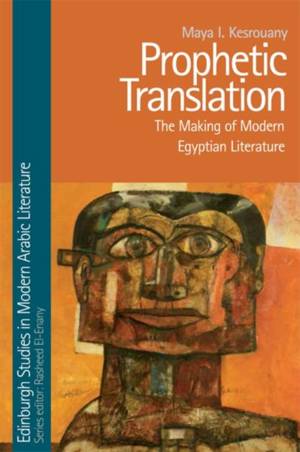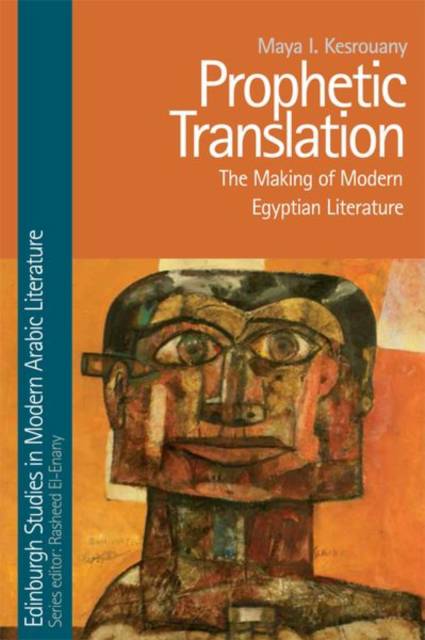
Je cadeautjes zeker op tijd in huis hebben voor de feestdagen? Kom langs in onze winkels en vind het perfecte geschenk!
- Afhalen na 1 uur in een winkel met voorraad
- Gratis thuislevering in België vanaf € 30
- Ruim aanbod met 7 miljoen producten
Je cadeautjes zeker op tijd in huis hebben voor de feestdagen? Kom langs in onze winkels en vind het perfecte geschenk!
- Afhalen na 1 uur in een winkel met voorraad
- Gratis thuislevering in België vanaf € 30
- Ruim aanbod met 7 miljoen producten
Zoeken
€ 201,45
+ 402 punten
Omschrijving
In this novel and pioneering study Maya I. Kesrouany explores the move from Qur'anic to secular approaches to literature in early 20th-century Egyptian literary translations, asking what we can learn from that period and the promise that translation held for the Egyptian writers of fiction at that time. Through their early adaptations, these writers crafted a prophetic, secular vocation for the narrator that gave access to a world of linguistic creation and interpretation unavailable to the common reader or the religious cleric. This book looks at the writers' claim to secular prophecy as it manifests itself in the adapted narrative voice of their translations to suggest an original sense of literary resistance to colonial oppression and occupation in the early Arabic novel.
Specificaties
Betrokkenen
- Auteur(s):
- Uitgeverij:
Inhoud
- Aantal bladzijden:
- 264
- Taal:
- Engels
- Reeks:
Eigenschappen
- Productcode (EAN):
- 9781474407403
- Verschijningsdatum:
- 9/01/2019
- Uitvoering:
- Hardcover
- Formaat:
- Genaaid
- Afmetingen:
- 160 mm x 239 mm
- Gewicht:
- 498 g

Alleen bij Standaard Boekhandel
+ 402 punten op je klantenkaart van Standaard Boekhandel
Beoordelingen
We publiceren alleen reviews die voldoen aan de voorwaarden voor reviews. Bekijk onze voorwaarden voor reviews.









